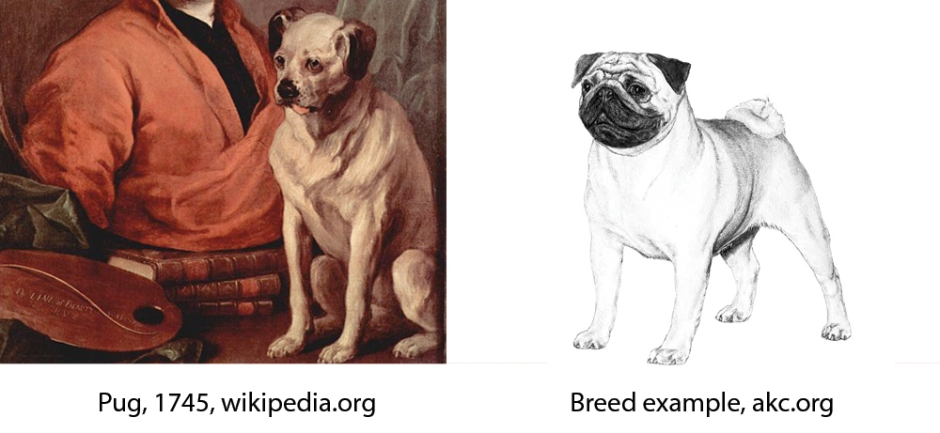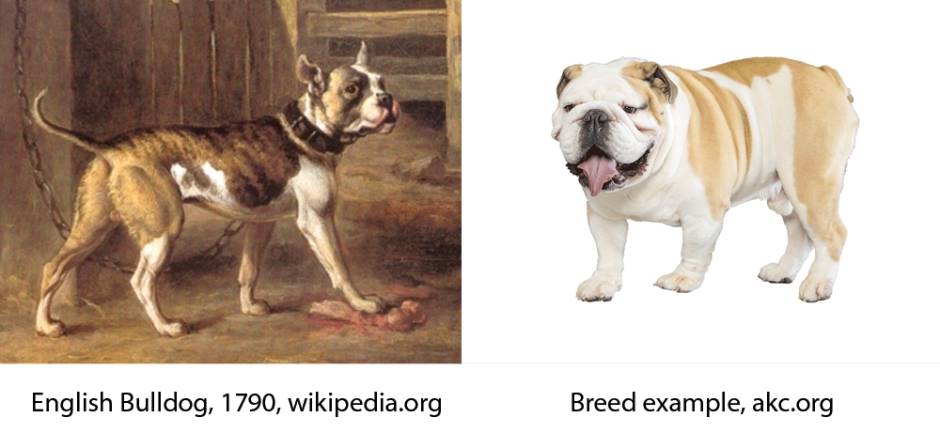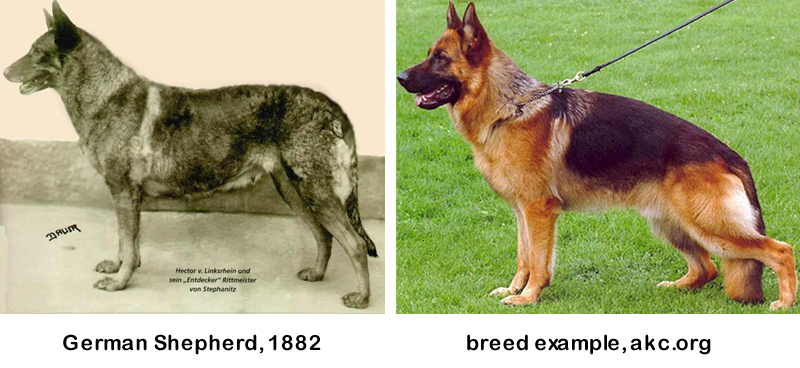I’m a fan of mutts. I’ve never had a dog with a simple answer to the commonly asked question, “What breed is your dog?” The answer to my current dog is typically a little shepherd/boxer/pit bull, etc. or simply mutt, depending on how sociable I’m feeling. Her origins are unknown. Even my vet said, “I see at least seven different kinds of dog here.”
I’ve never bought a pet from a breeder. I always adopt for many reasons. First, there are so many great animals in shelters who need good homes. For every purebred German shepherd or French bulldog out there, there are a dozen mutts in cages at the local shelter whose time is running out. It breaks my heart that I can’t adopt more of them.
Second, puppy mills. While there are reputable breeders out there who treat their dogs humanely, there are many evil bastards who force their breeding stock to live in cages and never see daylight.
I’ve seen the results of puppy mills first hand. A friend at the dog park adopted a purebred Rhodesian ridgeback who was thrown out on the street when she was too old to breed anymore. She had several serious health problems and was about 40 pounds underweight. They estimate that she was 10-12 years old, and she had spent her whole life up to that point in a cage making babies that her owners then sold off at a profit one at a time. She died less than a year after she obtained her freedom. I refuse to contribute to that.
Third, mutts are not inbred like every purebred dog on the planet. Because my dog is made up of many different kinds of dog, she won’t have difficulties due to selective breeding–the process by which humans breed animals for particular traits. I’m not saying that my dog is altogether healthier just because she’s a mutt, but she’s less likely to have specific health issues that come from being purebred.
Purebred is just a nice way of saying inbred.
Selective breeding is a nice way of saying eugenics.
Eugenics is the science of improving a human population by controlled breeding to increase the occurrence of desirable heritable characteristics. Developed largely by Francis Galton as a method of improving the human race, it fell into disfavor only after the perversion of its doctrines by the Nazis.
Eugenics is frowned upon for humans. We associate it with Hitler and Mengele and Dr. Death and lampshades made out of human skin. Part of the reason we disapprove of this practice is because, as the Nazis proved, “desirable heritable characteristics” are a slippery slope of subjectivity. Another part is that it’s inhumane, unnatural, and leads to unforeseen complications. Also, Nazis suck.
The Nazis thought that the most desirable humans were, well, people like me: tall, blonde, Nordic creatures with pale, white skin, and light eyes. But, besides Hitler, who’s to say that I’m any better than someone who’s short and dark? Certainly not me. Because of my genetics, I’m prone to skin cancer, light sensitivity, depression, and migraines.
In fact, simply because I’m of predominantly Finnish ancestry, I may be susceptible to 39 genetic diseases:
The uniformity of Finns, created by several centuries of isolation and intermarriage, results in a large set of hereditary disorders. So far researchers have identified 39 such genetic diseases, many of them fatal, that crop up in the unlucky children of unwary carriers.
Isolating a culture with inbreeding isn’t all that desirable in humans, yet we pay for the privilege of having an inbred dog. We parade the results of our inbreeding around in dog shows and hand out prizes for the best canine eugenics. Why is a practice considered monstrous when done on humans applauded when used on other living things?

Through selective breeding, pugs got smaller, shorter, a more squished face, and acquired all of these potential health issues: eye injuries; breathing difficulties; inability to efficiently regulate their temperature through panting; fluid or debris getting caught under the palate and irritating the throat or limiting breathing; weakened immune system, etc. Actually, there’s too much to list here, just read these paragraphs on pug health issues.

Today’s English bulldog is prone to many of the same health issues as the pug and others: difficulty breathing; regulating temperature; hip dysplasia; cysts; infections and mites in their skin folds; and a severely shortened lifespan (one study showed that only 9% of them die of old age). The overwhelming majority of bulldogs are delivered by Caesarean section because their heads are too big to fit through the birth canal. Again, the list of health issues is too long; read this.

Most French bulldogs are unable to breed naturally. They have very slim hips, making the male unable to mount the female. 80% of all French bulldogs are the result of artificial insemination and Caesarean section. They can neither impregnate nor give birth on their own. If humans didn’t intervene, French bulldogs would go extinct.
 Purebred German shepherd dogs are prone to hip dysplasia, where the leg joint’s ball and socket don’t fit together properly, which causes pain, arthritis, and problems walking. Dysplasia is entirely the result of breeding their hind ends to slope downwards, because some human somewhere decided it would look cool I guess. Other breed specific health problems can include pancreatitis, bloat, allergies, and more.
Purebred German shepherd dogs are prone to hip dysplasia, where the leg joint’s ball and socket don’t fit together properly, which causes pain, arthritis, and problems walking. Dysplasia is entirely the result of breeding their hind ends to slope downwards, because some human somewhere decided it would look cool I guess. Other breed specific health problems can include pancreatitis, bloat, allergies, and more.
Purebred Siberian huskies are predisposed to a variety of autoimmune disorders, many of which affect the skin, as well as glaucoma and cataracts. Boxers have a higher risk of lymphoma and mast cell tumors. Labrador retrievers are prone to obesity, beagles to epilepsy, dachshunds to back problems, Doberman pinschers to dilated cardiomyopathy (DCM).
And the list goes on. Every dog breed recognized by the American Kennel Club and the United Kennel Club has a higher risk of some sort of medical condition than other breeds. All of them.
That is the result of selective breeding. We did that. We created these problems for these dogs by inbreeding them to death. We made it so the English bulldog can’t exercise without risk of dying. We created French bulldogs that can’t breed naturally. We did that. We created a marketplace where people keep inbred dogs in cages their whole lives just to breed more of them. We hand out prizes and money for the best examples of inbreeding.
At the dog park, I heard a purebred boxer owner tell her dog to stop playing with my “dirty old mutt” and play with another purebred boxer that was there instead. I wanted to scream at her that at least my dirty old mutt’s father probably isn’t also her cousin, grandpa and brother.
I find the practice of canine eugenics disgusting and absolutely monstrous. Don’t even get me started on the mutilations (there’s really no other word for it) of these dogs to have them meet breed standards, e.g., cutting off their ears and tails. Dogs communicate with body language and tails and ears are a huge part of that. How the hell can you justify a breed standard that requires an animal to be mutilated? That’s not “standard.” I refuse to be a party to it. I refuse to buy a dog from a breeder or butcher a dog, not for any medical reason, but purely for looks. I’ll stick with my mutts with ears and tails the way they came.
Even if you’re only interested in a specific breed of dog, there are rescue organizations out there for nearly every breed imaginable. One dog park regular only has Airedale terriers, because he likes big dogs and he’s allergic to dogs with fur instead of the more hair-like fur of the terrier. All of his dogs have come from an Airedale rescue.
Breeders often dump dogs they can’t sell at the shelter (or out on the street) to make the rest of us deal with it. There are perfectly healthy purebreds sitting in shelters for a fraction of the cost, just because their ears don’t flop the right way, their coat is the wrong hue or a myriad other purely aesthetic (read: salable) reasons.
I’m not saying that purebreds are destined to have health problems. Nor am I saying that I’m right and you’re wrong if you have a purebred. Supplemented by fact as it is, this is still just my opinion. The reason for this post is that I want you to think about all of this the next time you go dog shopping, so that you can make an informed decision.
For whatever reason, if you feel you must buy a dog from a breeder, do the research. Find a reputable breeder and research the breed. Do not, even if inadvertently, support the practice of puppy mills, because the last thing we need is more dogs dumped at shelters.
Alright, maybe I am saying it: please, don’t shop, adopt.








